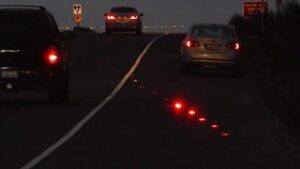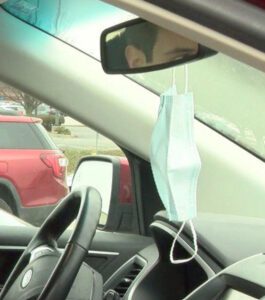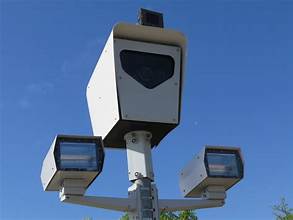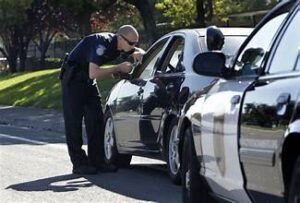
As a new year rolls around, many are not aware of new laws that may affect them. As it relates to transportation and travel, there are several significant new rules that began in 2024, and all need to be aware of them and understand how you may be affected. New laws differ from state to state, and some are new national laws. Some of these will be highlighted here.
![]()
Forbes has published its National Report Card on the Best and Worst States for Traffic Safety Laws. 2023’s results:
![]() Six states: Louisiana, Maryland, New York, Oregon, Rhode Island and Washington, plus Washington D.C., earned the best rating of green.
Six states: Louisiana, Maryland, New York, Oregon, Rhode Island and Washington, plus Washington D.C., earned the best rating of green.
![]() Ten states: Florida, Idaho, Michigan, Missouri, Montana, Nebraska, Nevada, Oklahoma, South Dakota, and Wyoming, received the worst rating of red for lagging dangerously behind in the adoption of recommended laws.
Ten states: Florida, Idaho, Michigan, Missouri, Montana, Nebraska, Nevada, Oklahoma, South Dakota, and Wyoming, received the worst rating of red for lagging dangerously behind in the adoption of recommended laws.
![]() The remaining 34 states earned a yellow rating, indicating that improvement is needed.
The remaining 34 states earned a yellow rating, indicating that improvement is needed.
NOTE: NO state has enacted all recommended countermeasures to prevent and reduce crashes, injuries and deaths.
Many States Have Enhanced Move Over Laws
All 50 states have Move Over laws to protect law enforcement officers and other first responders on the side of the road. Violations can result in fines and in some cases, jail time.

When a vehicle with flashing lights is stopped on or next to a roadway, drivers approaching the vehicle should:
- change into a lane not immediately adjacent to the vehicle, or
- slow down to a reasonable speed if unable to safely make a lane change.
New enhancements not only include emergency/law enforcement vehicles. Drivers will be required to move over if a disabled vehicle is:
- displaying its warning or hazard lights
- is stopped and using emergency flares
- if a vehicle has broken down and one or more people are ‘visibly present’.

Illinois
Go ahead and Hang It
Illinois drivers can now feel free to hang an air freshener, COVID-19 mask or rosary from their vehicle’s rear view mirror without the worry of being pulled over. Law Enforcement can no longer pull over vehicles for this. See HERE for more detail.


Beware of driving while on your cell
Meanwhile, police in Illinois are set to clamp down on drivers who are caught on their cell phone while driving, in an attempt to eradicate people driving dangerously due to being distracted.
Don’t Zoom and Drive
Videoconferencing while driving is now prohibited in Illinois.

Tennessee – GPS Tracking on Car Breathalyzers for DUI Offenders
This new law in Tennessee requires breathalyzers installed in vehicles of DUI convicts to have GPS technology. This addition aims to ensure sobriety of the driver and adds an extra layer of monitoring.

California
Speed Camera Pilots
Several new speed cameras in the cities of Los Angeles, Oakland, San Jose, Glendale, Long Beach and the county of San Francisco have deployed a limited number of cameras for a five-year pilot program to monitor and enforce speeding.

You Tell ME…
Officers can no longer open a conversation with a motorist they’ve pulled over with “Do you know why you were pulled over?” The new law requires officers to state the purpose of the interaction before asking other questions. The opening line can be used only “to protect life or property from imminent threat.”
Texas
‘Hands-free Texas’
Crackdown on hands usage while driving. Includes no texting, calling, using apps, use of a small handheld device, or choosing music – unless the driver is using hands-free technology.
Seat Belt Requirement Changes
New rules: everyone in a car, no matter where they are sitting, needs to wear a seat belt. Before, some exceptions might have been there.

In Summary
These are only a few of the may laws that went into effect at the beginning of the year. Check your state’s DMV website to determine if there are new traffic/travel laws that are now in effect, of which you may not be aware. Not being aware is not a defense.



